Historic Elections in Ireland, UK
Recent elections in Ireland and the UK have been characterized as big wins for Sinn Féin, and could result in an Irish unification vote sooner rather than later.
The new British Prime Minister – the Labour Party’s Keir Starmer – will likely have a powerful new influence from Belfast to Dublin, observers say.
“There’s no doubt the landscape is changing on our island,” Northern Ireland first minister Michelle O’Neill, of Sinn Féin, was quoted as saying.
Ireland’s former Taoiseach (prime minister) Leo Varadkar has said the next Irish government should “prepare for a referendum on Irish unification,” which would put the question of uniting the island’s 32 counties to voters.
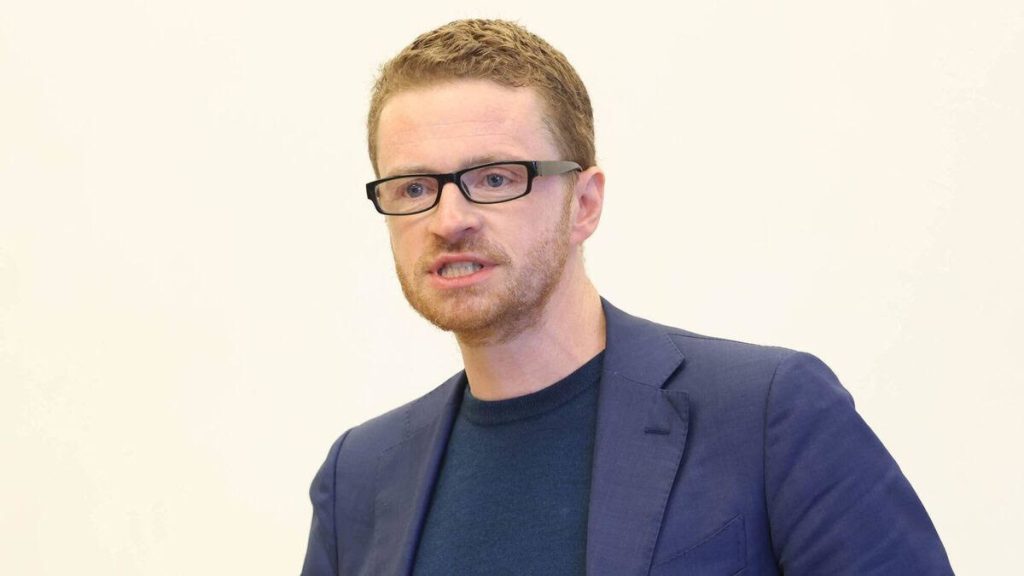
Meanwhile, political adviser – and Cork native – Morgan McSweeney is being touted as Starmer’s “righthand man,” and a “guru” following Labour’s big win.
McSweeney’s father Tim told Cork radio station 96FM that in his “wildest dreams” he never thought his son would be in such a position.
The elder McSweeney told host PJ Coogan his son “grew up in the atmosphere” of politics and that politics is “in his genes,” adding that he was “delighted” by his son’s choice of party.
“My father would turn in his grave if Morgan joined the Tories,” quipped Tim.
A Macroom native, McSweeney “left Ireland for England as a teenager and initially was working on building sites,” according to The Journal website. “McSweeney gained a junior role in Labour in 2001 and has since gone through the ranks in the party to become one of Keir Starmer’s closest aides and his campaign director.”
McSweeney’s wife, Imogen Walker, also won election to the British Parliament as a Labour candidate.
Rita and Martin
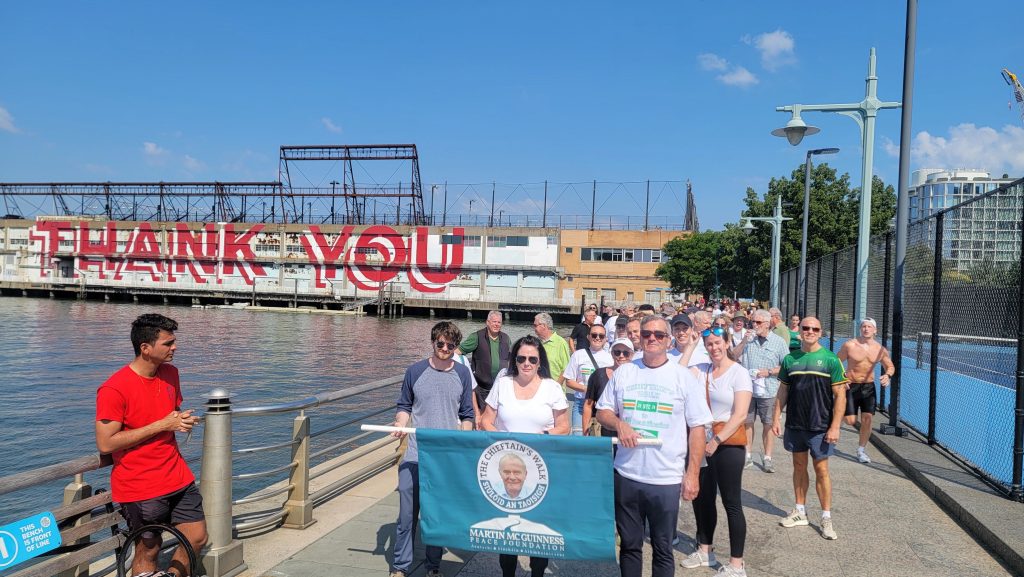
Friends of Sinn Féin hosted a launch of Rita O’Hare: A Memoir, and a Martin McGuinness Foundation Walk for Irish Unity in New York in September.
Over 100 participants took part in the 4th annual U.S. Martin McGuinness Peace Foundation Walk on Sunday, September 15th in New York City. The walk commenced at the Irish Hunger Memorial on Vesey Street and proceeded up the Hudson River Park Trust Greenway, along the Hudson River.
Dubbed the “Walk to Reunification,” the annual event commemorates the legacy of Martin McGuinness who passed away in 2017, and takes place in New York on the same date as the Chieftain’s Walk in Derry each year.
Martin was one the Chief architects of the Good Friday Agreement and the First Deputy Minister at Stormont.
Rita: A Memoir
Nelson Mandela referred to Rita as his “little warrior.”
Ciaran Quinn who took over as Sinn Fein’s representative to North America, said of O’Hare and McGuinness.
“Both Rita and Martin were formidable Irish Republican leaders. They paid a heavy price for their political beliefs: enduring jail, time on the run, arrest, and intimidation. Shot and left for dead, Rita carried the scars of her activism.
“They were unrelenting. Yet they never carried any bitterness. They acted not out of recrimination but of hope for a better future. And a united Ireland that would be a home for all. At all the events, stories were shared and the sound of laughter filled the air. It was not an occasion for sadness but a celebration. It was a community remembering.”
The book can be purchased online at: sinnfeinbookshop.com
New Body Set Up by Legacy Act Under Attack
While the new Labour government in Britain has promised to repeal much of the controversial Legacy Act passed by the previous Conservative administration, it says it will keep the Independent Commission for Reconciliation and Information Recovery (ICRIR) despite objections of local human rights NGOs and many families of victims in the conflict.
The decision to retain the body has reignited a fierce debate in Northern Ireland about how to best deal with the past.
The Legacy Act replaced many of the avenues for accountability of conflict-era crimes during the Northern Ireland conflict, including criminal and civil cases brought by families, and coroners inquests, with the ICRIR.
The new body was set up in May 2024 but many families refuse to co-operate with it, saying that the previous mechanisms for getting to the truth were imperfect but had more independence than the ICRIR.
Last week a court of appeal ruling in Belfast raised questions about the independence of the ICRIR, and how much power politicians had over it.
This week Emmett McConomy, brother of Stephen McConomy, who was 11 when he was shot dead by a British soldier in Derry in 1982, called on the ICRIR chief Sir Declan Morgan to resign, saying that the British Secretary of State for Northern Ireland had an effective veto over what information the ICRIR could disclose.
Stephen died after being shot in the back of the head with a plastic bullet. “The [Northern Ireland police force] RUC never investigated my brother’s murder,” said
Emmett McConomy. “Clearly from the outset he was just another Catholic from the Bogside and his life didn’t matter.” He said he has met Declan Morgan and told him the ICRIR was effectively controlled by the British Secretary of State. Emmett McConomy said: “Sir Declan should do the right thing now and step aside. He may as well step aside now because from my understanding from the victims I have spoken to locally none of them will be signing up to this [ICRIR].” The ICRIR received just eight “requests for investigation” in its first four months of operation.
Declan Morgan says the ICRIR’s independence “should be respected by all,” and criticised “unwarranted attacks” on the body. And British Secretary of State for Northern Ireland Hilary Benn says scrapping the ICRIR would leave “a vacuum,” and said he does not “understand the point” in abolishing the ICRIR as it would mean further delay for families seeking the truth over what happened to their loved ones decades ago.
The three judges in the court of appeal who heard last week’s case brought against the ICRIR by several victims’ families also ruled that the ICRIR does not provide victims and their next of kin adequate means to participate in its processes. Such access is essential for any mechanism to have the required credibility it needs, say rights groups. The court also endorsed some aspects of the ICRIR, including its ability to “require production of all information necessary to deliver effective investigations for victims, survivors and families.…”
But Sara Duddy of the human rights group the Pat Finucane Centre in Derry said: “The ICRIR won’t deliver on what victims’ families reasonably expect – independent investigations into crimes of the past, and the holding to account of those who committed them.”
In April 2024, an independent international panel of human rights experts produced an extensive assessment of the extent of impunity for British State forces during the conflict. I was one of the panel members, and we concluded that impunity had been “widespread, systemic and systematic” for British soldiers, police and other government officials responsible for torture and murder during the conflict.
The panel also noted that the ICRIR’s weaknesses risked exacerbating “the lack of trust among the immediate and ageing relatives [of victims] who, once again, may have to resign themselves to the fact that justice will not be delivered in their lifetime.”
– Brian Dooley
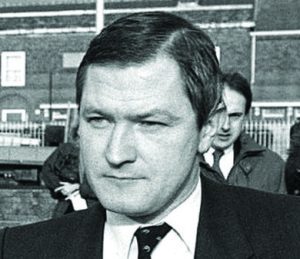
After 35 years of campaigning by his family, the British government finally agreed to establish an independent public inquiry into the murder of Pat Finucane.
Various British governments over the years have offered quasi-investigations into what happened, and have admitted “frankly shocking levels of collusion” between their security forces and the paramilitaries who killed the 39-year-old lawyer in 1989. After the British government’s announcement, Geraldine Finucane said: “We have only ever been concerned with uncovering the truth. It is this that has kept us going. It is the thing that has been missing, all these years. We did not believe that his murder was simply the work of gunmen who killed him.”
Details of the inquiry, when it will start, the specific terms of reference, and the judge or judges are be to announced.

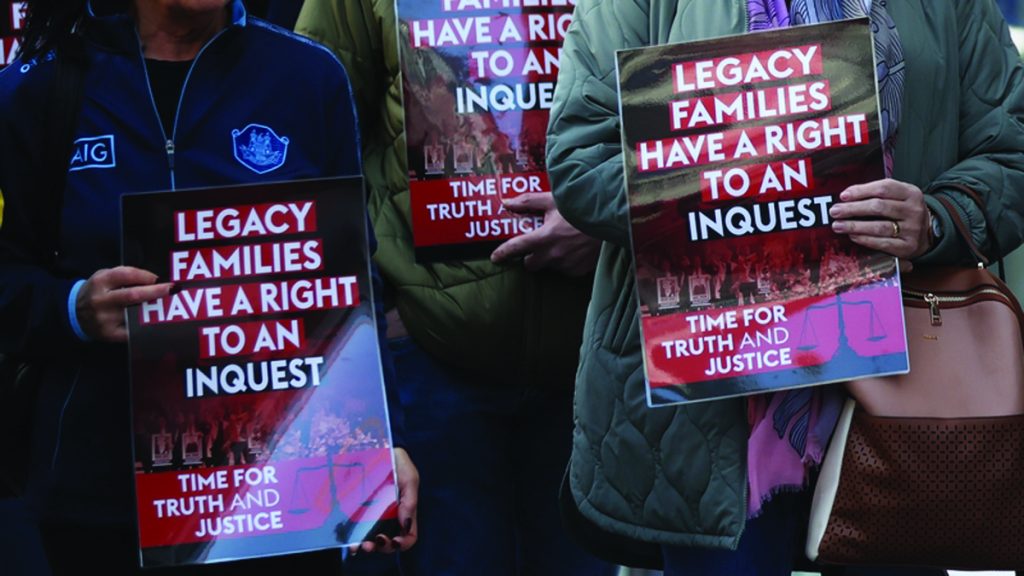
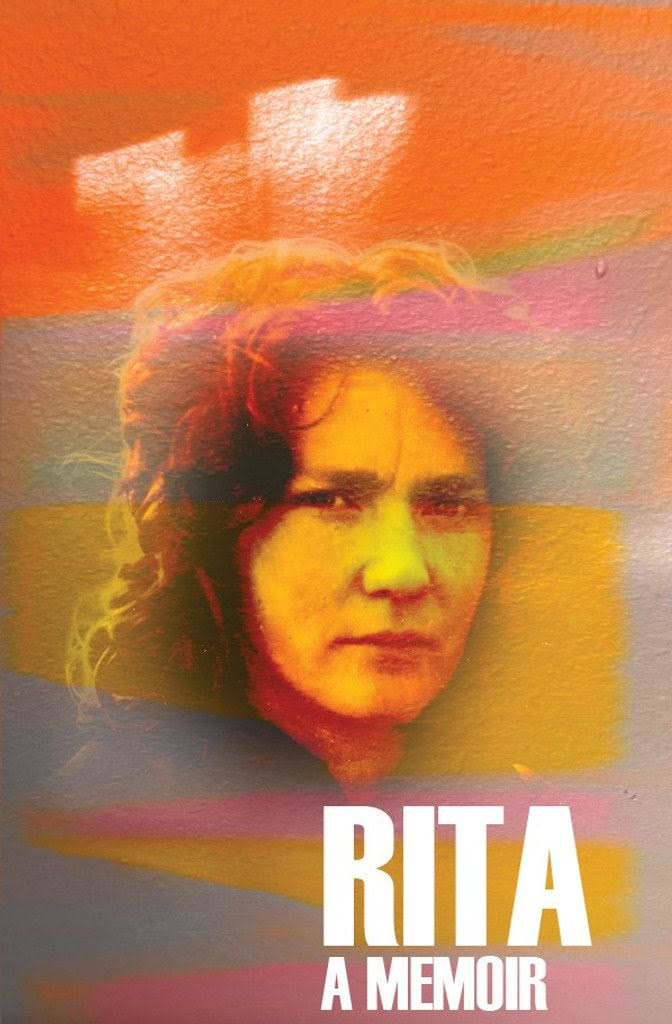
Leave a Reply